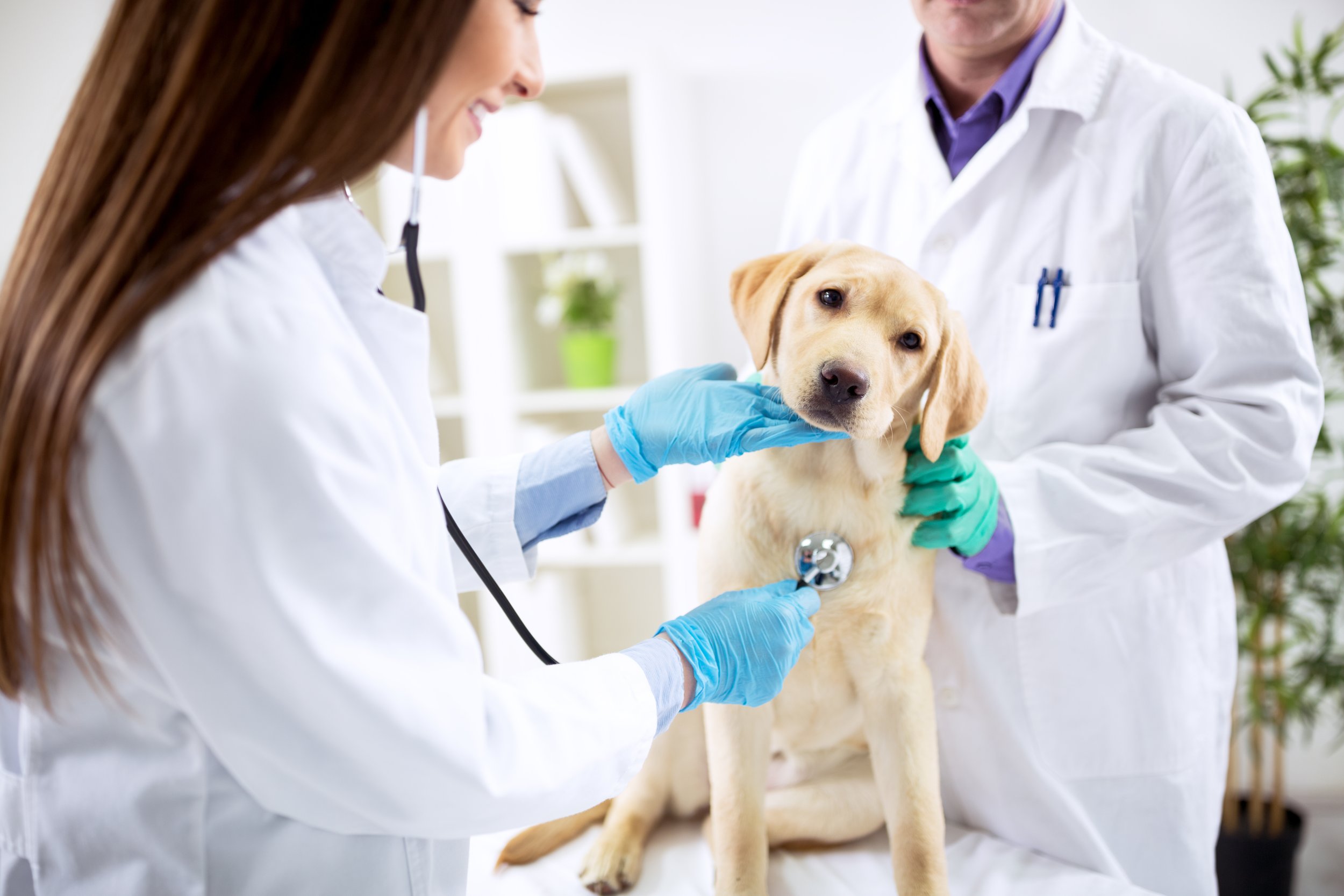6 Questions to Ask the Vet at Your Next Visit
Vet Checkups Can Be Difficult, but They’re Important
It’s rare to hear about a dog that loves going to the vet. New animal smells, unfamiliar people, poking, prodding, and injections can all contribute to a stressful and sometimes scary experience for any dog. They’re equally as likely to cause some anxiety for dog parents as we attempt to soothe our fretful furry friends with hugs and healthy dog treats. Despite the hassle, however, regular vet checkups are critical in maintaining our dogs’ health and wellness.
If you and your dog find yourselves frazzled when it comes time for a vet appointment, you’re not alone. The best way to get through it while ensuring your dog’s healthcare needs are fully addressed is by preparing ahead of time. The night before your dog’s vet appointment, you can:
Set up their carrier in the car or an easily accessible place for load-in
Set aside a small bag of their favorite treats to take with you
Desensitize your dog’s sensitive spots–i.e. Gently touch and handle their paws, belly, tail, and so on
Make a note of any changes in your dog’s behavior and prepare questions to ask your veterinarian
That last bullet point is the most essential step. Having a list of key talking points on hand can help you stay on track and address any pressing issues while helping your dog stay comfortable.
Ask Your Vet About These Health Topics
Veterinarians are eager to answer all of your questions to ensure your dog is receiving the best possible care. Here are a few questions that will help you keep your dog healthy for years to come.
What are these bumps/lumps on my dog?
Lumps and bumps are fairly normal occurrences for any dog. Just like humans, dogs may encounter acne, warts, skin tags, and so on at any stage of their lives. However, some bumps may indicate more significant problems beneath the surface. If you’ve noticed any new growths on your dog’s skin, or you feel a thickness that wasn’t there before, be sure to note its location and indicate it to your veterinarian for assessment.
Is my dog’s weight appropriate?
Your dog’s weight and diet have a significant impact on their longevity and quality of life. According to the 2022 State of the U.S. Pet Obesity Report, an alarming 59% of dogs in the U.S. are considered overweight. Your veterinarian can help assess the proper weight range for your dog based on their breed, age, and other factors. They can also recommend an all-natural, healthy diet that will help boost their energy levels while maintaining the proper weight.
Does my dog need any additional vaccinations?
Most veterinary offices will give you reminders when it’s time to give your dog the necessary shots and boosters, but it’s always good to check. This is especially important if you’ve recently welcomed your dog to your family, as you want to make sure they’re appropriately protected from common illnesses and diseases.
Is their behavior (chewing, itching, barking) normal?
Every dog acts out once in a while. However, if you’ve noticed a recent hyperfixation on certain behaviors, or brand-new behaviors they’ve never displayed before, it’s worth checking in with your vet. Sometimes, behaviors like paw chewing or excessive itching can indicate allergies or even mental health conditions. Dogs have good days and bad days just like their humans do, but it’s up to us to make sure those bad-day behaviors don’t become habitual.
How much exercise should my dog get daily?
The amount and type of exercise a dog needs varies greatly depending on their breed and stage of life. Whereas large breeds tend to need a few hours a day, toy breeds can be perfectly healthy with less exercise time. Your vet can give you a ballpark figure to aim for, as well as recommendations for appropriate types of exercise. If your dog is highly energetic, they may enjoy obstacle courses and long trail walks; low-energy dogs may be perfectly content with a simple walk and a few puzzle toys.
What signs of distress and disease should I look for in the future?
Your vet can’t watch your dog 24/7, so you have to be an advocate for your dog’s health at home. Based on your dog’s medical history, age, breed, and other factors, your veterinarian can give you a list of disease symptoms and warning signs to watch out for. Preparation is your most powerful tool when it comes to managing your dog’s health issues.
Give Your Dog a Treat After Their Next Vet Appointment
When you go to the vet’s office equipped with these questions, your dog’s healthcare provider can offer personalized solutions for a healthy lifestyle. After sitting patiently through examinations and treatments, your dog deserves a healthy treat to celebrate a job well done! Order a bag of our fresh and delicious Chicken Crisps for dogs and your dog will be ready to take on any challenges that come their way.

